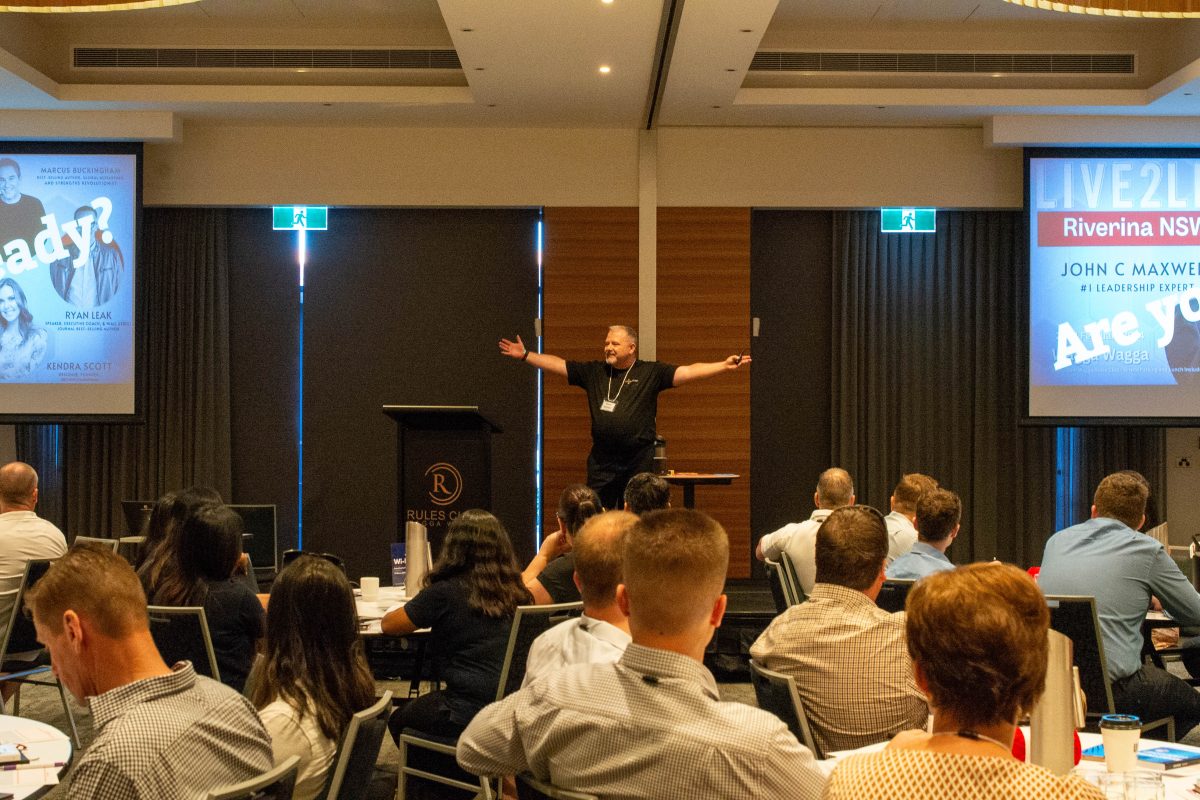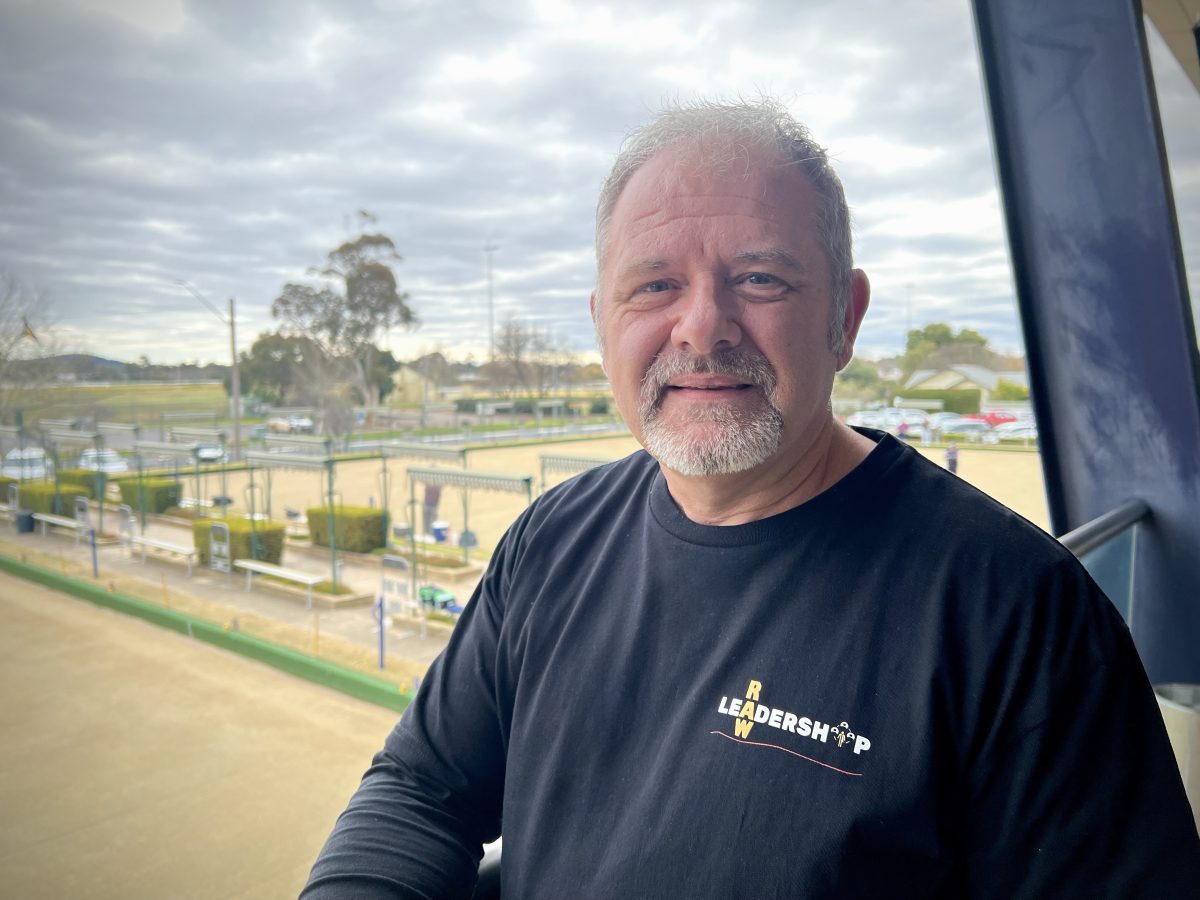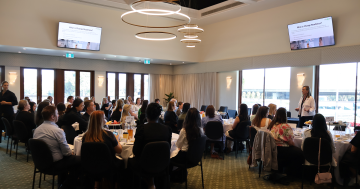
Steve Barker spoke on leadership with Riverina businesses at the Wagga Rules Club in February. Photo: Supplied.
According to Wagga’s Steve Barker from I am Enough Coaching, organisations across Australia are suffering from a shortage of leaders.
Steve said there were plenty of people who had assumed positions of authority, but genuine people leaders were few and far between.
“When we strip it back to its rawest form, leadership is the ability to influence another human being for the greater good, and I think that it’s a term that people are uncomfortable with,” he said.
“We prefer titles like ‘bosses’, ‘managers’ and ‘supervisors’, but when you look at the overall meaning – bosses boss people around, supervisors supervise people and managers manage resources, which include people. That’s not leadership.
“Leadership actually takes time, takes effort and a leader has actually got to want to put the effort in. It can be frustrating; it can be painful. It can be emotional, so people tend to shy away from that. Plus, they just don’t have the training.”
Providing that training is Steve’s stock in trade and he’s been working as a professional leadership coach for the past decade.

Steve Barker learned a lot about leadership during 26 years in the Royal Air Force. Photo: Chris Roe.
A Royal Air Force veteran and former basic recruit instructor, Steve spent 26 years serving across the world in a hierarchical environment, observing different approaches to leadership and honing his skills in conflict resolution, creative problem solving and communication.
“You get a wide range of variety of leadership styles in the military, from the autocratic, do as you’re told leader, to the people-centric leader and everything in between,” he said.
“I didn’t realise until later that I’d been taking bits and pieces from all of them and that was when I started to realise that leadership is a skill that needs to be learned, and it’s all about people.
“Once I started to get my head around that, then I could also start to lead people.”
Twelve years ago, while serving on exchange at RAAF Base Wagga, he decided to stick around and is now an Australian citizen and a full-time leadership coach, working with organisations across the Riverina and the country.
One of the things he noticed after leaving the military was how heavily they invested in leadership training compared to the civilian workforce.
He said poor leadership led to poor outcomes and created dissatisfaction among workers that then rippled through the economy and the community.
“I’ve lost count of the number of people that I know who’ve been promoted because they’re great at their job,” he said.
“They’ve taken a step up and, they are still great at their old job, but now the job is to have people under them and they haven’t been given any training.
“All of a sudden the job that they used to love now becomes a pain and causes them a lot of anxiety and frustration.”
Steve hosted a leadership conference in Wagga this year with more than 100 attendees and began by asking them if they had had leadership coaching, training or mentoring in any form.
“Only two people put their hands up, and one of those was a member of the ADF,” he said.
“That led me to my next question: Who has experienced good leadership? And about 50 per cent of the room put their hand up? I was like, OK, well, that’s good. Who has experienced poor leadership? One hundred per cent of the room put their hand up.
“Without training, we fall back on role modelling and if you have poor role models then there’s a ripple effect.”
With a saturated jobs market and a post-COVID shift in priorities among employees, Steve said it was past time for a new ‘people-centred’ approach.
“It all goes back to the Industrial Revolution when we needed bosses, managers and supervisors so that when the steam engine was fired up at seven o’clock in the morning everyone was sitting at their stations doing whatever they needed to be doing.
“They managed the equipment and made sure workers hit their targets and that was how the boss made money. Well, that was in 1700. It’s now 2024 and we’ve got to wake up and smell the coffee.
“If you treat people like a piece of equipment, they’re gonna break down like a piece of equipment.
“If we can evolve and put people before profit, profit will come. If we put people before profit, they’ll want to stay and we will retain them.”
Steve will be sharing his perspectives on leadership, recruitment and staff retention at the Wagga Rules Club later this month.








